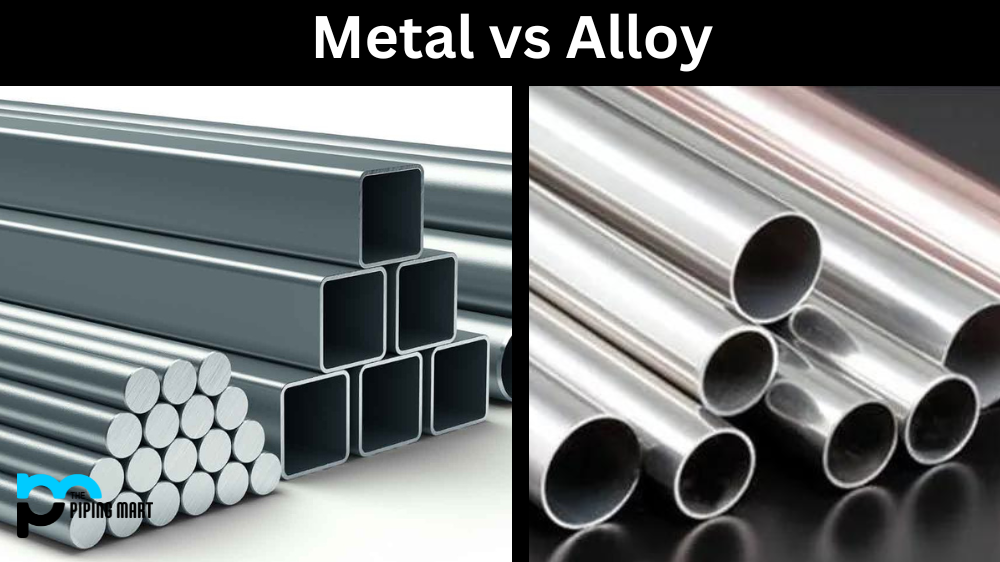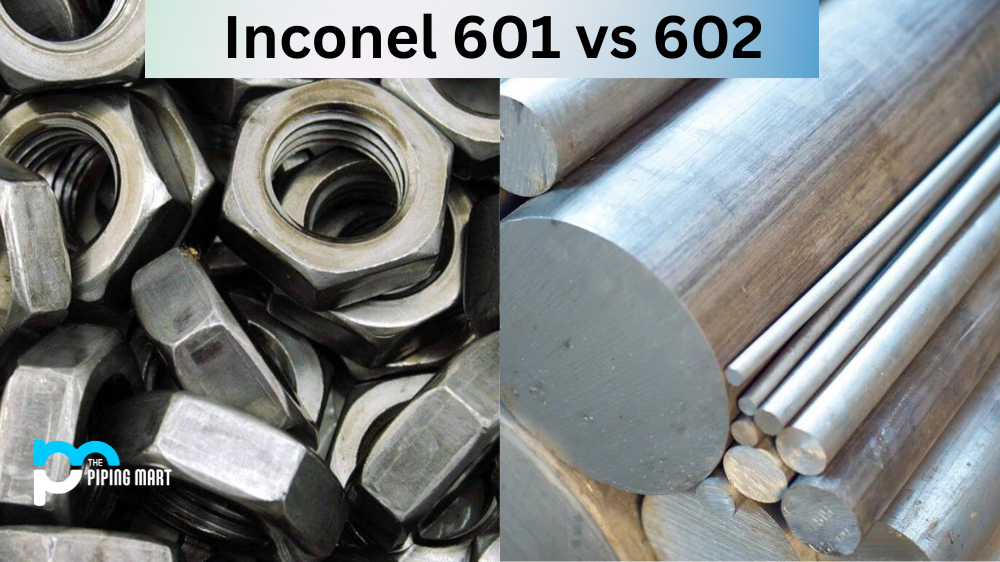Have you ever wondered what the difference is between metal and alloy? Both terms are often used interchangeably, but there are some key differences between the two. This blog post will explore these differences and how they affect performance. We’ll also discuss why alloy is so popular in modern manufacturing processes.
What is Metal?
In its purest form, metal is a naturally occurring material consisting of atoms bound together to form a solid substance. Examples of pure metals include copper, gold, silver, and aluminium. Pure metals can be very strong but tend to be brittle and easily break under pressure or stress. They also tend to corrode quickly unless treated with a protective coating such as chrome plating or galvanizing.
What is an Alloy?
An alloy is a combination of two or more elements, at least one of which must be a metal. The other elements may be metals or non-metals like carbon and oxygen. Alloys offer unique benefits because their properties depend on the elements that make up the alloy — for example, combining iron with nickel creates stainless steel, which has superior strength compared to iron alone. Alloys can also have improved corrosion resistance compared to unalloyed metals due to the presence of elements such as chromium or zinc in certain alloys.
Why Use Alloy?
The alloy has become increasingly popular in modern manufacturing due to its versatility and cost-effectiveness compared to pure metals. Unlike pure metals, which do not always provide enough strength for certain applications, such as aerospace components, alloys can be tailored to meet specific requirements while still being cost-effective. Additionally, alloys often come with improved corrosion resistance due to their composition — making them ideal for use in harsh environments where pure metals fail quickly without proper protection from coatings or other treatments. Finally, alloys are often lighter than pure metals since they contain fewer atoms per unit volume — making them less dense and thus easier to work with during fabrication processes.
- Steel (an alloy of iron and carbon).
- Brass (an alloy of copper and zinc).
- Bronze (an alloy of copper and tin).
Diffefrence Between Metal and Alloy
Properties of Metals
Metals are good conductors of electricity and heat, which means they can be used for wiring and other applications where these properties are desired. Metals are also ductile, meaning they can be drawn into thin wires, and malleable, meaning they can be hammered or pressed into thin sheets. Additionally, most metals are lustrous, meaning they have a shiny appearance.
Properties of Alloys
Alloys typically have properties that are intermediate between those of the component metals. For example, brass is an alloy of copper and zinc that is harder than pure copper or pure zinc. Steel is an alloy of iron and carbon stronger than pure iron but not as strong as pure carbon (i.e., diamond).
Uses of Metals and Alloys
Metals and alloys have a wide range of uses due to their unique properties. Metals such as copper and aluminium are often used in electrical applications because of their high conductivity. Steel is commonly used in construction because of its strength and durability. Gold and silver are often used in jewellery because of their lustrous appearance.
Conclusion:
In conclusion, understanding the difference between metal and alloy is essential when selecting materials for any application—from structural components like bridges to automotive parts like wheels and engines. Alloys offer superior strength compared to pure metals while also providing improved corrosion resistance due to their unique composition of elements—making them ideal for use in many industries where strength and durability are essential for success. With careful selection of alloying elements by engineers and manufacturers alike, alloys will continue to remain an important material choice for many applications moving forward into the future!

Abhishek is a seasoned blogger and industry expert, sharing his insights and knowledge on various topics. With his research, Abhishek offers valuable insights and tips for professionals and enthusiasts. Follow him for expert advice on the latest trends and developments in the metal industry.




